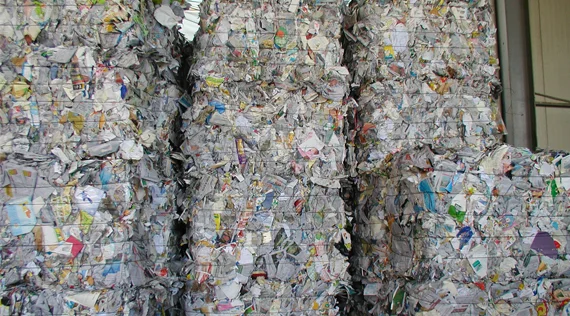
SEATTLE (Scrap Monster): The U.S. Plastics Pact representing 80 companies — including Coca-Cola, Nestlé and Danone — has pushed back deadlines to drastically reduce their use of plastic, from 2025 to 2030.
The five-year slip reflects how corporations are often failing to meet the audacious climate goals they set less than a decade ago. At the same time, plastic production has escalated. In 2022, manufacturers churned out 400.3 million metric tons of plastics, up by 1.6 percent from 2021, according to Statista.
The following targets for plastic packaging are no longer set for 2025, according to the pact:
Eliminating problematic materials, such as tableware and PFAS chemicals.
Baking in reusability, recyclability or compostability to all packaging.
Reaching a 50 percent plastic recycling rate.
Integrating recycled or responsibly sourced bio-based materials into 30 percent of all packaging.
“Yes, they were very ambitious,” said Emily Tipaldo, executive director of the U.S. Plastics Pact. “You have to set a marker. And that's what the targets did in 2020. This put a marker out there very publicly to say, ‘This is what we're aiming for, especially in the US when we don't have a federal government that's really acting on this.’”
Not all pact members expressed a rosy outlook.
“I am frustrated that the burden of creating infrastructure is continually shifted,” said Lauren Click, executive director of Let’s Go Compost, a nonprofit pact member. Her Scottsdale, Arizona, organization advocates for compostable packaging in school lunchrooms. “Packagers refuse to fund it, municipalities lack the funds, and the public is already overwhelmed by recycling, let alone compostable plastics.”
Founded in 2020, the U.S. Plastics Pact was first launched in the U.S. by the Ellen MacArthur Foundation. There are now 12 pacts globally.
At the time, the U.S. was — and remains — the largest market without laws mandating extended producer responsibility (EPR), which require companies to take care of the waste their packaging creates, Tipaldo noted. So members of the U.S. Plastics Pact — representing about a third of the nation’s plastic packaging market — made their commitments independently.
Over time, that encouraged bills to move forward in several U.S. states.
“Because they've been able to do that on a voluntary basis over the last few years, that's what has cultivated the support for extended producer responsibility for packaging to deposit return systems and recycled content mandates,” Tipaldo said.
“One of the unseen, in-the-background benefits, I would argue, is the groundswell of support for policy. … And again, it may be incremental, but we need to be going in that direction.
Courtesy: www.greenbiz.com



| Copper Scrap View All | |
| Alternator | 0.42 (0) |
| #1 Copper Bare Bright | 4.35 (-0.04) |
| Aluminum Scrap View All | |
| 356 Aluminum Wheels (Clean) | 0.83 (0) |
| 6061 Extrusions | 0.73 (0) |
| Steel Scrap View All | |
| #1 Bundle | 360.00 (0) |
| #1 Busheling | 380.00 (0) |
| Electronics Scrap View All | |